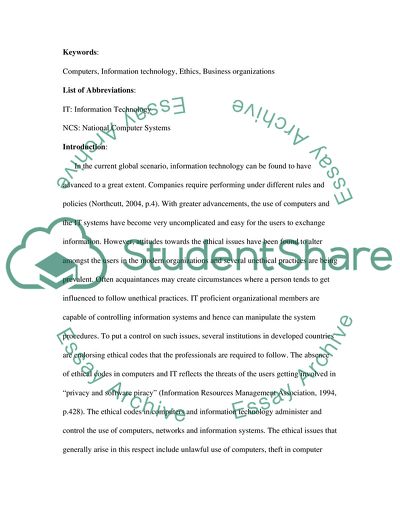Cite this document
(Teaching IT Ethics in Arabic Countries Approaches and Attitudes Research Paper - 1, n.d.)
Teaching IT Ethics in Arabic Countries Approaches and Attitudes Research Paper - 1. Retrieved from https://studentshare.org/information-technology/1756614-teaching-it-ethics-in-arabic-countries-approaches-and-attitudes
Teaching IT Ethics in Arabic Countries Approaches and Attitudes Research Paper - 1. Retrieved from https://studentshare.org/information-technology/1756614-teaching-it-ethics-in-arabic-countries-approaches-and-attitudes
(Teaching IT Ethics in Arabic Countries Approaches and Attitudes Research Paper - 1)
Teaching IT Ethics in Arabic Countries Approaches and Attitudes Research Paper - 1. https://studentshare.org/information-technology/1756614-teaching-it-ethics-in-arabic-countries-approaches-and-attitudes.
Teaching IT Ethics in Arabic Countries Approaches and Attitudes Research Paper - 1. https://studentshare.org/information-technology/1756614-teaching-it-ethics-in-arabic-countries-approaches-and-attitudes.
“Teaching IT Ethics in Arabic Countries Approaches and Attitudes Research Paper - 1”. https://studentshare.org/information-technology/1756614-teaching-it-ethics-in-arabic-countries-approaches-and-attitudes.


